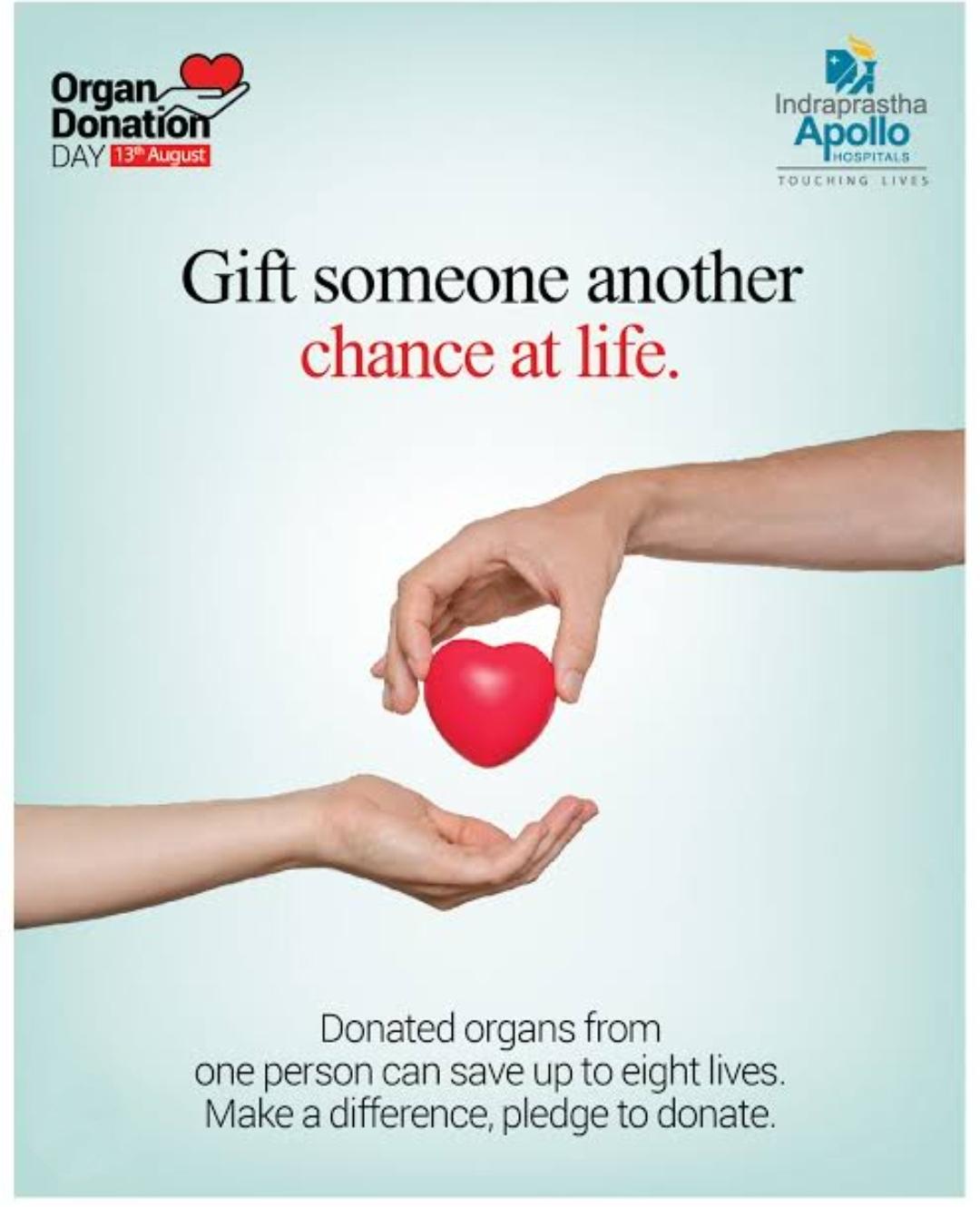World Organ Donation Day is observed every year on August 13 to raise awareness about the importance of organ donation and encourage people to pledge their organs after death. It aims to save lives by promoting the idea that one donor can give a new lease of life to multiple people.
Purpose:
Spread awareness about the need for organ donors.
Educate people about the process and safety of organ donation.
Dispel myths and misconceptions surrounding organ donation.
Significance:
Organ donation can save or improve the lives of those suffering from organ failure. A single donor can donate the heart, lungs, kidneys, liver, pancreas, intestines, corneas, skin, and tissues. Timely donations can transform the quality of life for recipients.
Types of Organ Donation:
Living Donation – When a living person donates an organ (like one kidney or part of the liver) to someone in need.
Deceased Donation – When organs are taken from a person who has been declared brain dead.
Eligibility:
Any healthy person, regardless of age or gender, can register as a donor.
Medical suitability is determined at the time of donation.
Theme 2025: (To be updated based on official announcement) – Each year, the day is marked with a theme highlighting a specific aspect of organ donation awareness.

